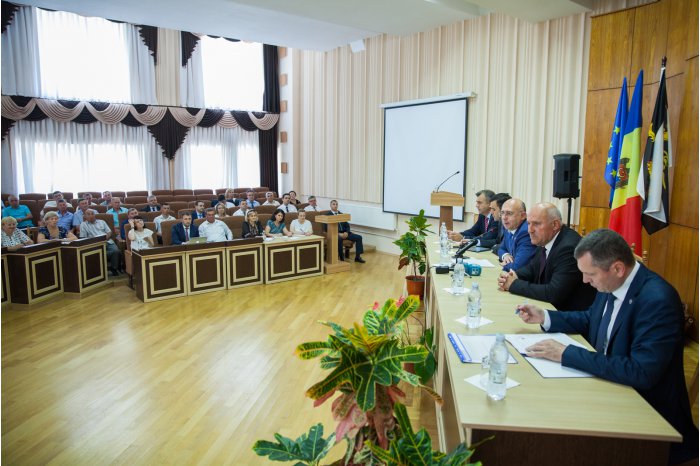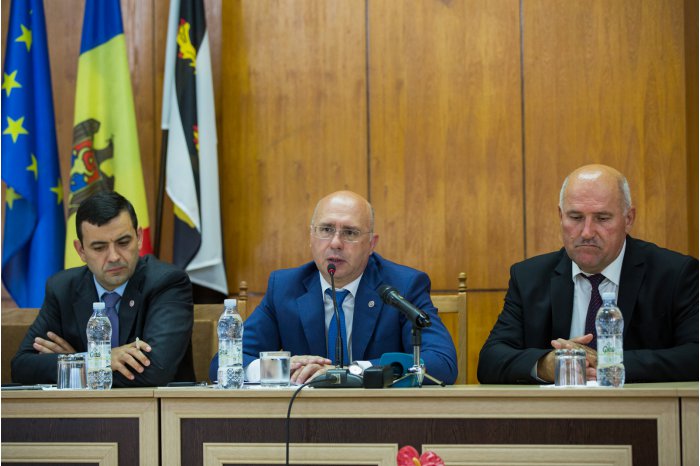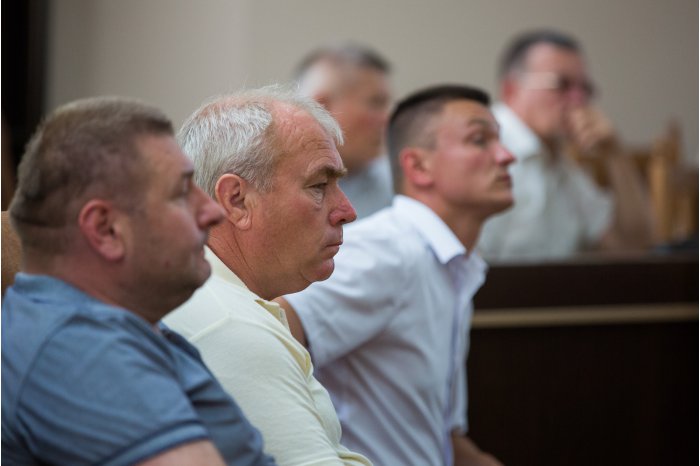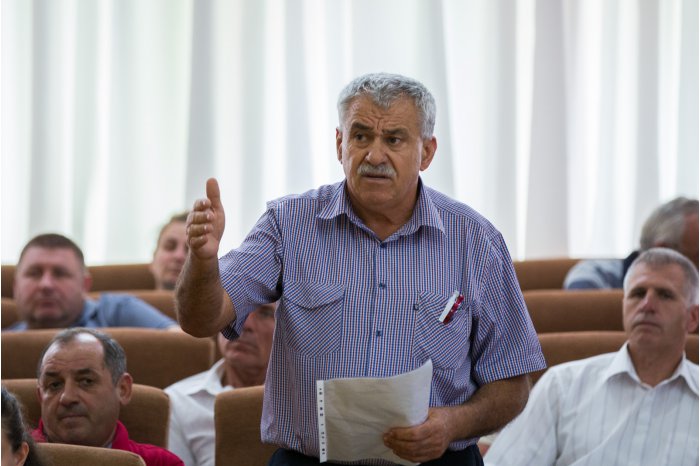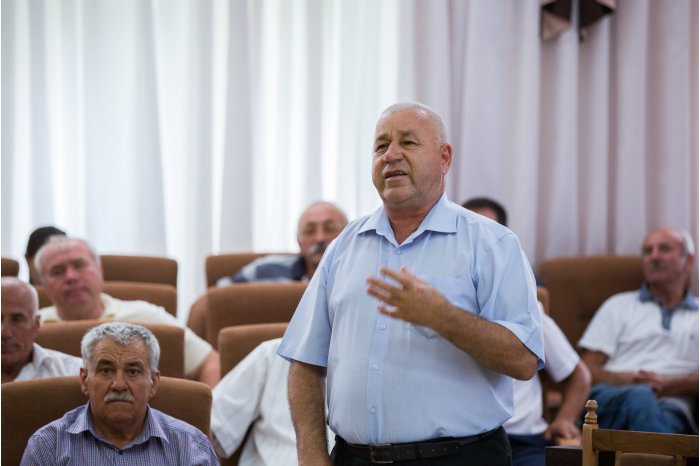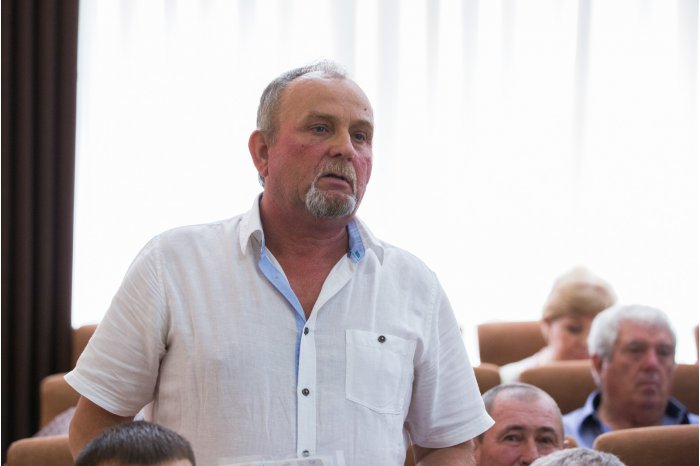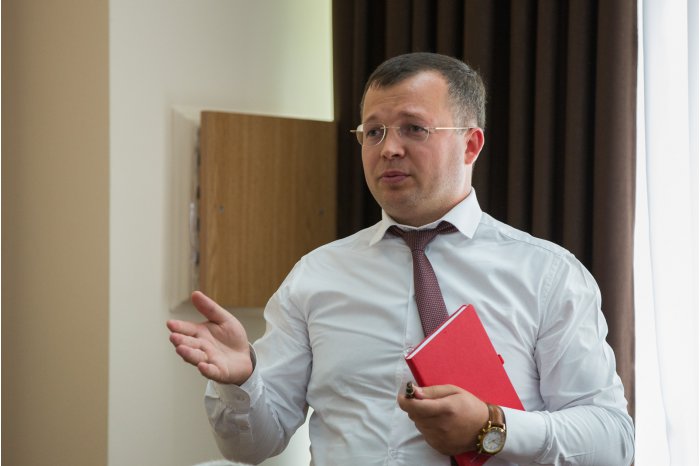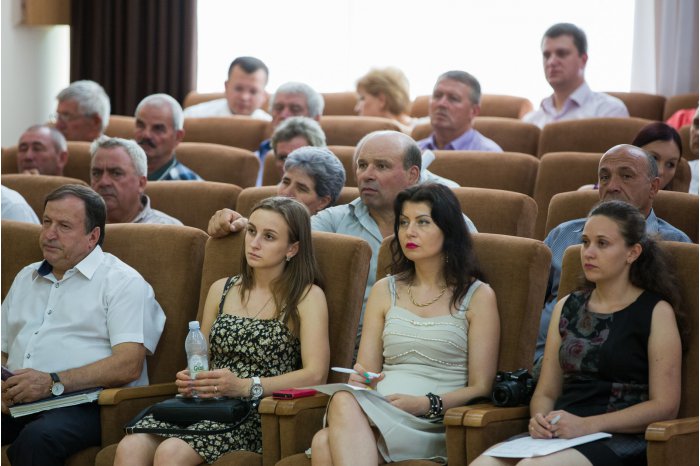Moldovan premier meets business people from southern district
16:44 | 13.07.2018 Category: Official
Chisinau, 13 July /MOLDPRES/ - Prime Minister Pavel Filip, along with the heads of the key institutions in managing the economic environment today had a meeting with business people from the southern Leova district, in order to jointly assess the investment climate in the region.
According to the government’s communication and protocol department, the prime minister appreciated the diversity and specific character of the business developed in the Leova district, where more than 8,000 small- and medium-sized enterprises are recorded, most of them being farms. The PM reiterated that the cabinet’s efforts were aimed at improving the investment climate in Moldova. He spoke out for a constructive dialogue with entrepreneurs from the region, in order to lean from the first source on which segments the government can intervene to facilitate entrepreneurs’ work.
In this context, Pavel Filip has emphasized the measures already undertaken by the cabinet: establishing a moratorium on controls, cutting the number of institutions with control duties and of permissive acts from 416 to about 150, of which 29 ones are issued at the Single Window, recently launched. “It is important that these acts be provided in comfortable conditions; the documents will be issued to economic agents upon the presentation of a single act – identity card,” the prime minister said.
At the same time, the budgetary and fiscal policy was approved for a three-year period and the Labour Code was improved. Subsidies in advance this year will be provided to young people launching business in agriculture, with 45 million lei allocated to this end in 2018. Pavel Filip said that other initiatives came next to upgrade the business environment.
During discussions, economic agents notified the authorities about the difficulties they were facing in their work. Thus, they highlighted the lack of a domestic sales market for farming products, problems in the cleaning of non-tilled farmlands, excessive taxation at the import of high-tech agricultural technology, deficiencies in accessing European grants, as well as losses registered in the wake of enterprises’ disconnection from electricity supply.
The PM said that the constructive proposals set forth by entrepreneurs would be evaluated, including on the platform of the Economic Council under the Prime Minister, in order to work out initiatives which would solve the problems notified.
